What Pool Filter Is The Best?
When it comes to maintaining a clean and healthy swimming pool, choosing the right pool filter is crucial. With various types of filters available on the market, each with its own advantages and considerations, it can be overwhelming to determine which one is the best fit for your pool. In this comprehensive guide, we will explore the three main types of pool filters - sand, cartridge, and diatomaceous earth (DE) filters. We will delve into their features, benefits, drawbacks, and factors to consider, empowering you to make an informed decision about the best pool filter for your specific needs.
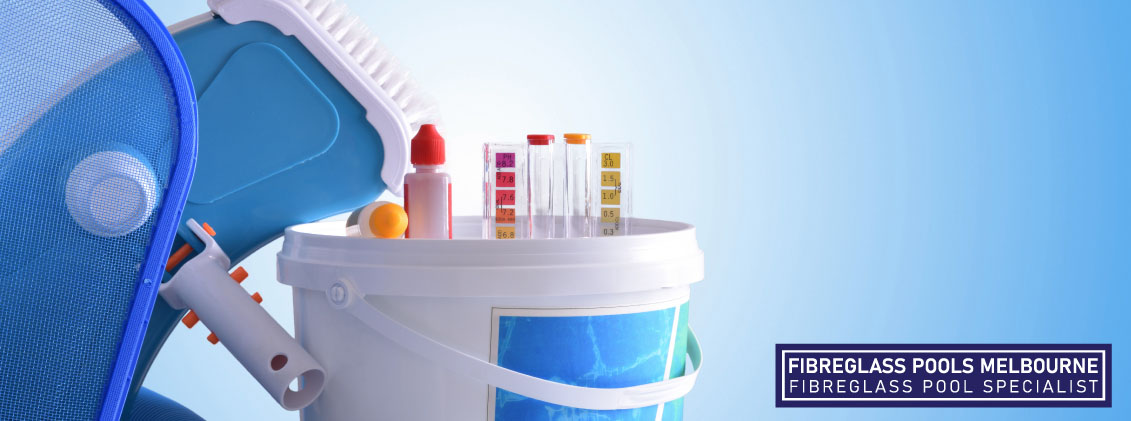
Sand Filters
Sand filters are the most commonly used type of pool filter due to their affordability and ease of maintenance. These filters utilise a tank filled with specially graded sand to trap and remove debris from the water. They offer effective filtration by capturing particles of various sizes.
Pros and Cons Of Sand Filters
Sand filters offer a low initial cost, minimal maintenance requirements, and the ability to handle high flow rates. However, they do have limitations and are less effective at filtering finer particles. They need periodic backwashing to clean the filter media.
Cartridge Filters
Cartridge filters are known for their superior filtration capabilities and convenience. They consist of a pleated filter cartridge made of polyester or other durable materials, which traps debris as water passes through. These filters offer excellent filtration of small particles and require less frequent maintenance compared to sand filters.
Pros and Cons Of Cartridge Filters
Cartridge filters offer high filtration efficiency, easy installation, and the absence of backwashing, which saves water. However, they do come at a higher initial cost and they potentially need more frequent cartridge replacements. The flow rates can reduce as the filter gets dirty.
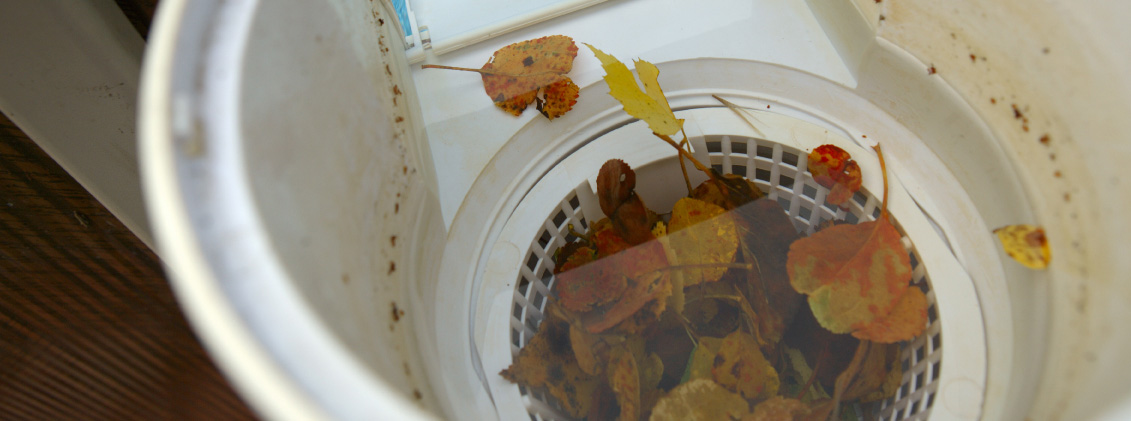
Diatomaceous Earth (DE) Filters
Diatomaceous Earth (DE) filters are renowned for their exceptional filtration performance, making them a top choice for pool owners seeking crystal-clear water. DE filters use a grid coated with diatomaceous earth, a fine powder made from fossilised algae, to capture even the smallest particles from the water.
Pros and Cons Of DE Filters
DE filters boast superior filtration down to microscopic levels, they can maintain high flow rates, and less frequent cleanings compared to other filters. However, they do cost more and they generally require more regular maintenance. Additionally, the DE powder can enter the pool if the filter is not properly maintained.
Factors to Consider
To determine the best pool filter for your specific needs, several factors should be taken into consideration. Some of these include the pool size, water quality, budget, maintenance requirements, and personal preferences.
Maintenance and Cleaning
Maintenance and cleaning requirements are crucial considerations when choosing the best pool filter. Here are the maintenance aspects of each filter type:
Sand Filters: Sand filters require regular backwashing to remove trapped debris and restore optimal flow. Backwashing involves reversing the water flow through the filter and flushing out accumulated dirt. While this is a straightforward process, it does require water and may result in some water wastage. Additionally, sand filters will need occasional sand replacement after several years of use.
Cartridge Filters: Cartridge filters are relatively low maintenance. The cartridges can be removed and cleaned with a hose or soaked in a cleaning solution to remove debris. However, over time, the cartridges may become clogged and less efficient, requiring replacement. Depending on the size of your pool and the filter’s condition, cartridges typically need to be replaced every one to two years.
DE Filters: DE filters require the most maintenance but offer exceptional filtration. The filter grids coated with diatomaceous earth need periodic cleaning and replacement of the DE powder. This process involves removing the grids, hosing them down, and applying a fresh layer of DE powder. While more involved than the maintenance of other filters, DE filters provide unparalleled clarity and can go longer between cleanings compared to sand and cartridge filters.
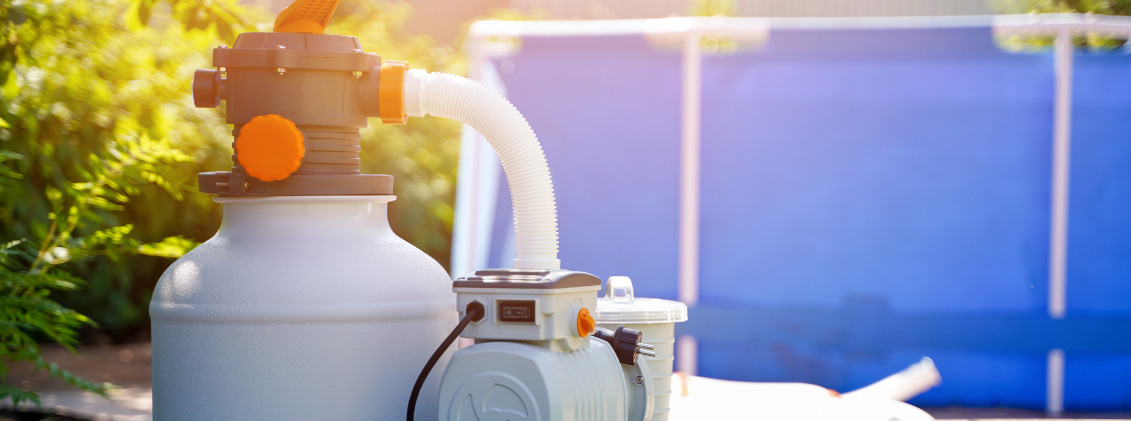
Cost Considerations
Cost is an important factor when choosing a pool filter. The initial purchase price, ongoing maintenance expenses, and potential long-term savings should be evaluated.
Sand Filters: Sand filters are the most affordable option upfront, making them popular among budget-conscious pool owners. They have relatively low maintenance costs, primarily requiring occasional sand replacement and backwashing. However, it’s important to note that sand filters may not provide the same level of filtration as cartridge or DE filters.
Cartridge Filters: Cartridge filters have a higher initial cost compared to sand filters. They may also require more frequent cartridge replacements, which can add to the long-term expenses. However, their lower maintenance needs and water-saving benefits due to the absence of backwashing can contribute to cost savings in the long run.
DE Filters: DE filters have the highest initial cost among the three filter types. They require periodic cleaning and replacement of DE powder, which adds to the maintenance expenses. However, their exceptional filtration performance and longer periods between cleanings can result in improved water quality and potential savings on chemicals over time.
It’s important to consider both the upfront costs and the long-term maintenance expenses when determining the best pool filter for your budget. Assess your priorities, such as filtration efficiency, convenience, and ongoing costs, to make an informed decision.
Conclusion
Selecting the best pool filter is essential for maintaining clean and healthy pool water. By understanding the features, benefits, drawbacks, and factors to consider for each type of filter – sand, cartridge, and DE – you can make an informed decision that aligns with your pool’s needs and your personal preferences. Whether you prioritise affordability, convenience, or superior filtration, there is a pool filter that suits your requirements. Remember to assess the specific factors relevant to your pool and consult with professionals for guidance if needed. With the right pool filter in place, you can enjoy sparkling, pristine water and a swimming pool that is a source of relaxation and enjoyment for years to come.
What Pool Filter Is The Best?
When it comes to maintaining a clean and healthy swimming pool, choosing the right pool filter is crucial. With various types of filters available on the market, each with its own advantages and considerations, it can be overwhelming to determine which one is the best fit for your pool. In this comprehensive guide, we will explore the three main types of pool filters - sand, cartridge, and diatomaceous earth (DE) filters. We will delve into their features, benefits, drawbacks, and factors to consider, empowering you to make an informed decision about the best pool filter for your specific needs.

Sand Filters
Sand filters are the most commonly used type of pool filter due to their affordability and ease of maintenance. These filters utilise a tank filled with specially graded sand to trap and remove debris from the water. They offer effective filtration by capturing particles of various sizes.
Pros and Cons Of Sand Filters
Sand filters offer a low initial cost, minimal maintenance requirements, and the ability to handle high flow rates. However, they do have limitations and are less effective at filtering finer particles. They need periodic backwashing to clean the filter media.
Cartridge Filters
Cartridge filters are known for their superior filtration capabilities and convenience. They consist of a pleated filter cartridge made of polyester or other durable materials, which traps debris as water passes through. These filters offer excellent filtration of small particles and require less frequent maintenance compared to sand filters.
Pros and Cons Of Cartridge Filters
Cartridge filters offer high filtration efficiency, easy installation, and the absence of backwashing, which saves water. However, they do come at a higher initial cost and they potentially need more frequent cartridge replacements. The flow rates can reduce as the filter gets dirty.
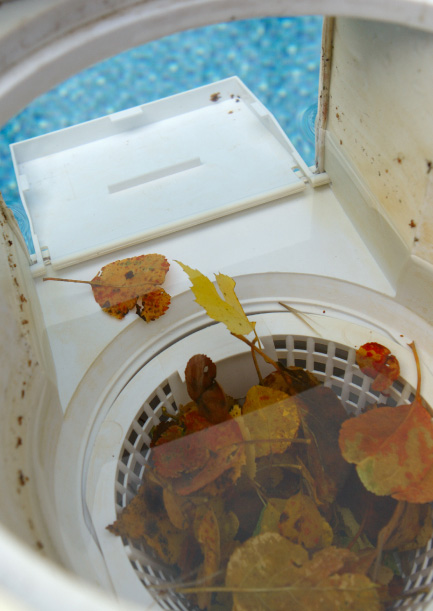
Diatomaceous Earth (DE) Filters
Diatomaceous Earth (DE) filters are renowned for their exceptional filtration performance, making them a top choice for pool owners seeking crystal-clear water. DE filters use a grid coated with diatomaceous earth, a fine powder made from fossilised algae, to capture even the smallest particles from the water.
Pros and Cons Of DE Filters
DE filters boast superior filtration down to microscopic levels, they can maintain high flow rates, and less frequent cleanings compared to other filters. However, they do cost more and they generally require more regular maintenance. Additionally, the DE powder can enter the pool if the filter is not properly maintained.
Factors to Consider
To determine the best pool filter for your specific needs, several factors should be taken into consideration. Some of these include the pool size, water quality, budget, maintenance requirements, and personal preferences.
Maintenance and Cleaning
Maintenance and cleaning requirements are crucial considerations when choosing the best pool filter. Here are the maintenance aspects of each filter type:
Sand Filters: Sand filters require regular backwashing to remove trapped debris and restore optimal flow. Backwashing involves reversing the water flow through the filter and flushing out accumulated dirt. While this is a straightforward process, it does require water and may result in some water wastage. Additionally, sand filters will need occasional sand replacement after several years of use.
Cartridge Filters: Cartridge filters are relatively low maintenance. The cartridges can be removed and cleaned with a hose or soaked in a cleaning solution to remove debris. However, over time, the cartridges may become clogged and less efficient, requiring replacement. Depending on the size of your pool and the filter’s condition, cartridges typically need to be replaced every one to two years.
DE Filters: DE filters require the most maintenance but offer exceptional filtration. The filter grids coated with diatomaceous earth need periodic cleaning and replacement of the DE powder. This process involves removing the grids, hosing them down, and applying a fresh layer of DE powder. While more involved than the maintenance of other filters, DE filters provide unparalleled clarity and can go longer between cleanings compared to sand and cartridge filters.
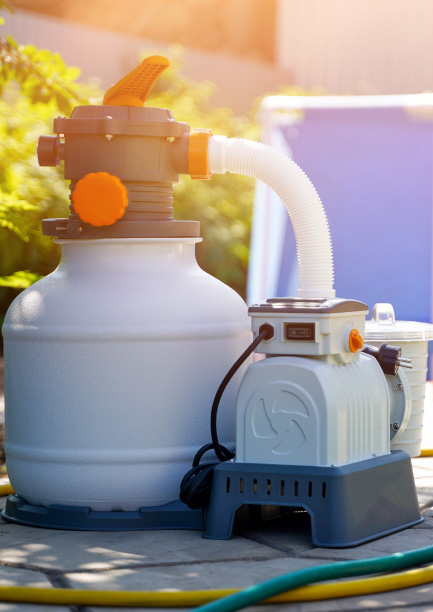
Cost Considerations
Cost is an important factor when choosing a pool filter. The initial purchase price, ongoing maintenance expenses, and potential long-term savings should be evaluated.
Sand Filters: Sand filters are the most affordable option upfront, making them popular among budget-conscious pool owners. They have relatively low maintenance costs, primarily requiring occasional sand replacement and backwashing. However, it’s important to note that sand filters may not provide the same level of filtration as cartridge or DE filters.
Cartridge Filters: Cartridge filters have a higher initial cost compared to sand filters. They may also require more frequent cartridge replacements, which can add to the long-term expenses. However, their lower maintenance needs and water-saving benefits due to the absence of backwashing can contribute to cost savings in the long run.
DE Filters: DE filters have the highest initial cost among the three filter types. They require periodic cleaning and replacement of DE powder, which adds to the maintenance expenses. However, their exceptional filtration performance and longer periods between cleanings can result in improved water quality and potential savings on chemicals over time.
It’s important to consider both the upfront costs and the long-term maintenance expenses when determining the best pool filter for your budget. Assess your priorities, such as filtration efficiency, convenience, and ongoing costs, to make an informed decision.
Conclusion
Selecting the best pool filter is essential for maintaining clean and healthy pool water. By understanding the features, benefits, drawbacks, and factors to consider for each type of filter – sand, cartridge, and DE – you can make an informed decision that aligns with your pool’s needs and your personal preferences. Whether you prioritise affordability, convenience, or superior filtration, there is a pool filter that suits your requirements. Remember to assess the specific factors relevant to your pool and consult with professionals for guidance if needed. With the right pool filter in place, you can enjoy sparkling, pristine water and a swimming pool that is a source of relaxation and enjoyment for years to come.


